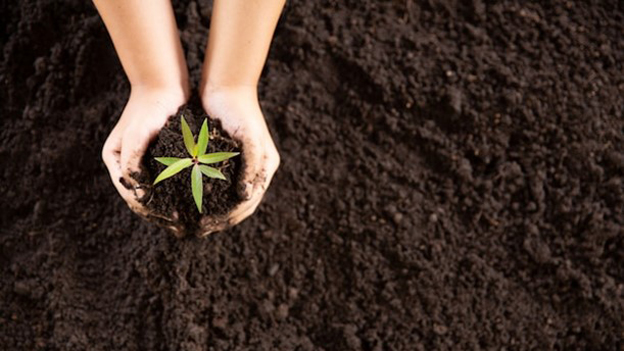How to Use Fertilizers Properly to Improve Soil Health?
Soil is the foundation of life, on which agriculture and our environment depend. So it is very crucial to maintain soil health, especially in times like this when we are living in the 21st century. This is the age of science and all its related activities are on both sides of the spectrum. Since modern agriculture relies largely on fertilizers to accelerate agricultural production, it caters to the needs of the global population, and if the use of fertilizers is not managed properly, it can affect soil fertility and productivity. Like all living beings, soil too needs air and water to stay alive so it can support life and to keep it healthy is the job of organisms that live on soil which are known as soil organisms.
Fertilizers are the additional substances that are directly added to the plant or soil for productivity and to promote plant growth. There are two main types of fertilizers - organic and inorganic fertilizers. Organic fertilizers are also known as natural fertilizers which can be obtained from plants and animals whereas, inorganic fertilizers are man-made and are obtained through chemical techniques. Using organic fertilizers seems to be the most effective way of retaining soil health and produce quality yields.
Mentioned below are some inputs: -
Manure
Manure is in the form of animal excreta and decomposed dead plants that are added to the soil to improve its fertility. Nutrients, organic matter, energy and fibre are a few of its components. Adding manure to the soil is an effective way to multiply organic matter which in turn improves the overall soil health.
Soil Conditioners
It is a kind of additive product which, when added to the soil, improves the soil’s physical qualities and fertility. Before applying soil conditioner make sure to test your soil in order to determine the pH level then identify the type of soil conditioner you need. Lastly, to improve soil productivity the soil conditioner has to be mixed with the soil to a depth of 3-4 inches then water thoroughly.
Bio stimulants
Bio stimulants are a kind of substance or microorganisms that can be applied to seeds, plants and soil. Bio stimulants from seaweed extracts are one of the popular ones as they help plants to be resilient and bio char is used for soil fertility and productivity.
Bio Fertilizers
Bio fertilizers keep the soil environment intact with nutrients. Bio fertilizers play a key role in maintaining long-term soil fertility and seem to be an alternative to hazardous chemical fertilizers.
Bio Pesticides
Life in soil plays a vital role in storing carbon. Though the usage of pesticides keeps away all kinds of pests that want to feed on your produce while doing this we have to ensure that we adopt the usage of bio pesticides rather than chemical pesticides which may be harmful to the microorganisms that live in the soil.
Slow-Release Fertilizers
Slow-release fertilizers release nutrients gradually into the soil over an extended period of time. They can improve soil health by aiding the growth of microorganisms which in turn improves the soil structure and can be a good soil enhancer.
Nano Fertilizers
These are nutrients in the form of nanoparticles to improve nutrient efficiency for plants. One such example is the Nano Liquid Urea manufactured by Indian Farmers Fertilizer Cooperative Limited (IFFCO). It is an eco-friendly solution for crop nutrition while curbing down soil, water and air pollution.
The health of a country’s soil is delicate and is one of the most important resources as it carries out ecological services that sustain life on this planet. In order to maintain soil health, farmers across the world need to be educated on different types of soil fertilizer and their uses. Due to human activities, the ecosystem of the soil has been adulterated which could be a potential threat in the future.



